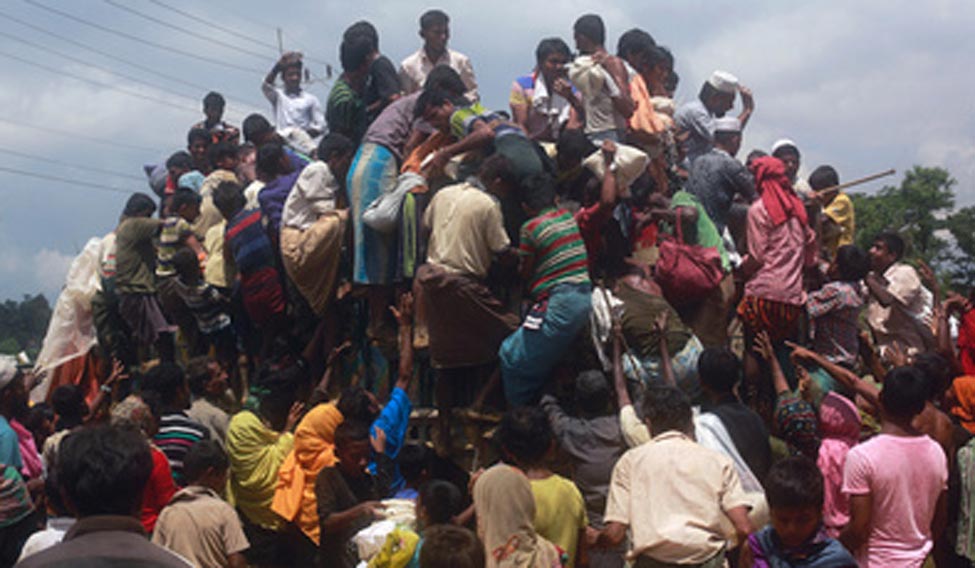India has started Operation Insaniyat, a humanitarian project to provide assistance to Bangladesh which is grappling with the influx of Rohingya refugees from Myanmar. In the last one month, over three lakh Rohingya Muslims have escaped from their reservations in Arakan district and reached Bangladesh. Most of them are at Cox's Bazaar.
Starting Thursday, the Indian Air Force will make several trips to Chittagong, carrying relief material consisting of rice, pulses, sugar, salt, cooking oil, tea, ready-to-eat noodles, biscuits and mosquito nets. “India has always responded readily and swiftly to any crisis in Bangladesh in keeping with the close ties of friendship between the peoples of India and Bangladesh. India stands ready to provide any assistance required by the government of Bangladesh in this hour of need,'' said a statement from the ministry of external affairs (MEA).
The Rohingya crisis has become a cause of worry in the subcontinent. Myanmar, which has always refused to see Rohingyas as part of the ethnic mix of its country, considers them illegal Bangladeshi immigrants, although the waves of migration might have happened centuries ago. Last month, after an uprising in the Rohingya camp, the Myanmar forces have allegedly upped their brutalities, forcing many Rohingyas to flee the country. Since the Rakhine region is close to Bangladesh border, it is to this country where droves of Rohingyas are heading, and Bangladesh's resources are strained.
A few days ago, Bangladeshi high commissioner to India Syed Muazzem Ali met foreign secretary S. Jaishankar to discuss ways to deal with the situation that is getting out of hand. Bangladesh has also appealed to the international community at large to help in managing this humanitarian crisis.
India has 40,000 Rohingya migrants already, and is keen to resolve the problem in Bangladesh, knowing well that several thousands of the new wave of refugees there will ultimately head for India. Minister of State for Home Kiren Rijiju's recent categorical statement that India would deport the 40,000 Rohingya refugees has drawn flak from the United Nations Commission for Human Rights as well as embarrassed the administration. Although India does not have a long term refugee programme and is not signatory to the international convention on refugees, the country has offered refuge for lakhs of people from diverse persecuted communities.
Besides, there is no immediate deportation programme ready with the home ministry, the biggest reason for which is—where does one deport these people? Myanmar does not consider them as its own. Any plan on dealing with these refugees would require tense engagement between the affected countries. Rajiv Chander, India's ambassador and permanent representative in the UN, responding to the censure from the UNHCR, said, “Like many other nations, India is concerned about illegal migrants, in particular with the possibility that they could pose security challenges. Enforcing laws should not be mistaken for lack of compassion.''
Operation Insaniyat is as much about telling the world about India's compassion as it is for helping a neighbour. But plane loads of relief material will not address the security challenge at India's border —India has considered the Rohingya community a security threat. And even as Prime Minister Narendra Modi makes India's stance clear by expressing solidarity with the Myanmar administration in dealing with its security challenges, unless the Rohingyas get a home, they will continue to be knocking at doors of others, including India.





